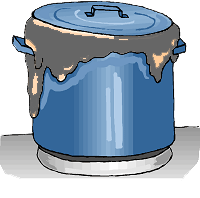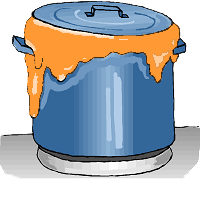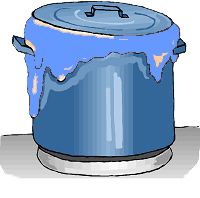About COVID
Its impact on the political, the social, and the personal
Since the beginning of the COVID epidemic, the first widespread epidemic in the US since the Spanish Flu (1918), the lid has been lifted on three simmering pots. These pots have been simmering forever, filled with slightly different concoctions. What are the concoctions made of? The basic recipe is human nature, which is composed of some sweet ingredients (the “good”), some sour ingredients (the “bad”), and some poisonous ingredients (the “ugly”). What are these three pots? The first one is politics, the second one is social, and the third is personal.
THE
POLITICAL
POT
THE
SOCIAL
POT
THE
PERSONAL
POT
What did COVID uncover?
– Our form of government endlessly goes back and forth between laissez-faire (small government) and authoritarianism (pervasive government). A sufficiently large trigger causes the pendulum to swing sometimes wildly in either direction. COVID was such a trigger.
– Corruption, laziness, deception, incompetence, cronyism, and other ills are endemic in any bureaucracy and they’ve always been and they’re incurable. COVID just gave us more “in your face” proof that we’re not immune from these shortcomings.
– Political leaders are just people, motivated by personal safety and comfort, beset by the seven deadly emotions, with sometimes traumatic personal and family histories and life events. COVID (and other factors) put additional pressure on them and brought out their good, their bad, or their ugly much more so than in “normal” times.
– Public services, such as schools, proved to be very vulnerable to the impact of COVID. The confusion over close/open, mask/unmask, vaccinate/boost proved to be too much for these vital infrastructures.
What did COVID uncover?
– Our social fabric, a.k.a. civilization, can tear apart rather easily, and can be difficult and costly to repair. COVID (and other factors) showed us how fragile an orderly society can become.
– We make very poor use of technology, which shows our brilliance and our immaturity. COVID brought out the loudest and wisest voices, with the former often overwhelming the latter.
– All knowledge (science and information) can be manipulated for purposes that benefit certain groups and individuals, to the detriment of the common good. COVID created a lot of skepticism about science and the motives of certain experts in dealing “scientifically” with the emergency. Opinion frequently seemed to triumph over facts.
– The institutional media (newspapers, TV) are driven by the same thing as always: sensationalism, which translates into subscriptions. COVID (and other factors) pushed the industry to the brink.
– Social media proved to be a blessing and a curse, and a simple fact was uncovered by COVID: it is a raw, young medium that will require us to learn its limitations and its dangers–a learning curve which may span a couple of generations.
What did COVID uncover?
– Mental health issues are far more widespread than previously known. COVID represented an existential threat, and the stress, anxiety, fear, high emotionality it uncovered seem to have been mostly appropriate considering the magnitude of it.
– The legacy of the COVID years will span decades, given a human nature which enhances the memory (fear) of the bad and prioritizes it over the good and the normal.
– When push comes to shove, it’s everyone for him/herself. COVID showed this side of our nature in many ways, not least of which is a lack of empathy toward the vulnerable and the uninformed and a rise in the judgmental and the self-righteous.
– Fear is a bad counselor when it leads to paralysis or overreaction. COVID stoked it to the max.
– Many individuals experience severe avoidance and poor decision-making skills on a regular basis. COVID made good decision-making more difficult, because of the confusion, the fear, and some unreliable information sources.



